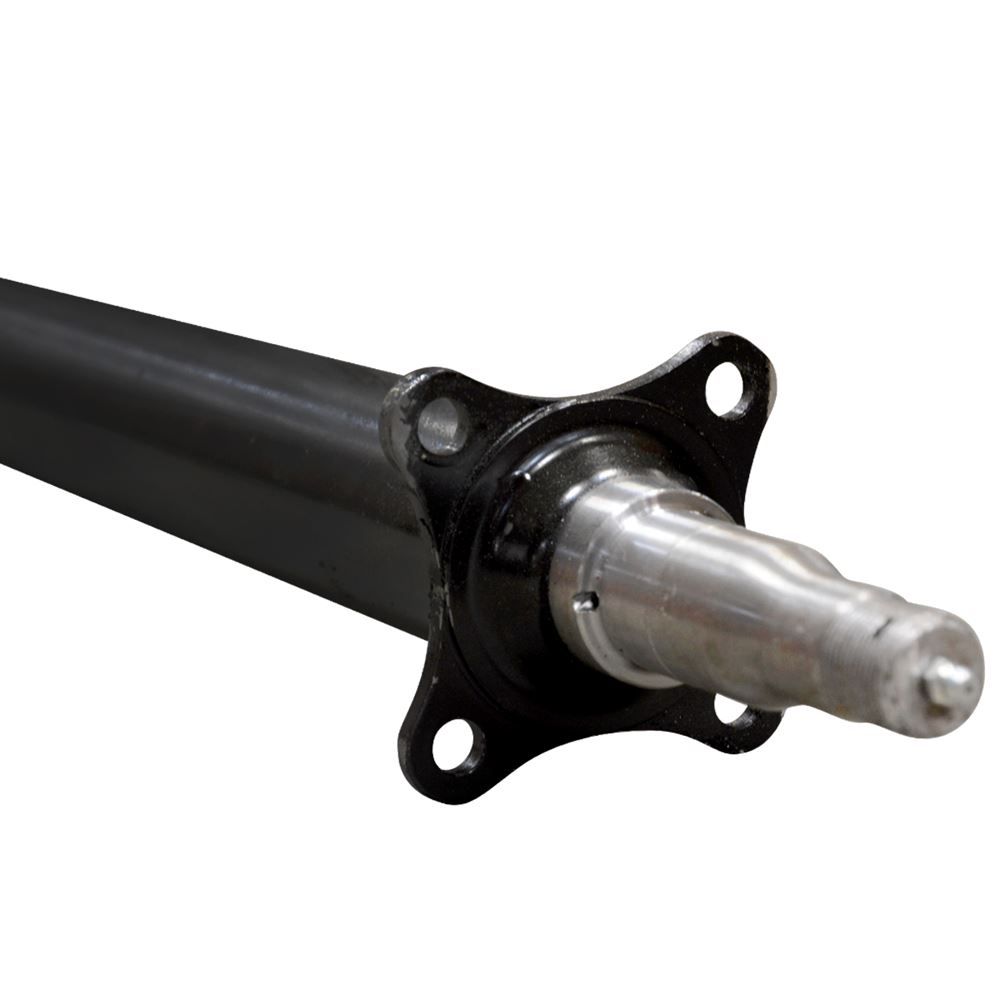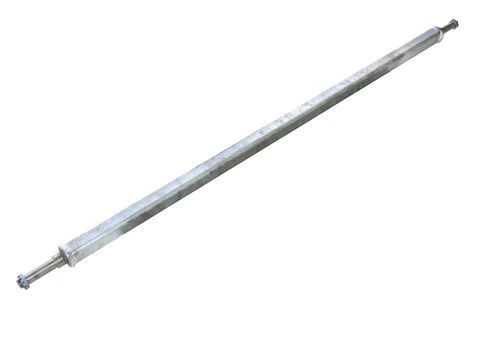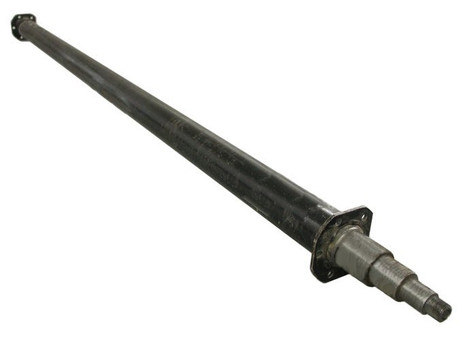Product Description
Product Description
German Type BPW Truck Trailer Drum Axles 16t Front Rear Axle
1. One-piece shaft tube, high strength, comfortable appearance.
2. Compared with other axles of the same load, it is light in weight and low in price.
3. Using non-asbestos friction plate, more environmentally friendly.
4. Adopting international general specifications, maintenance is convenient, fast and low cost.
Accessories
It adopts high-quality accessories from major brands at home and abroad, and global standard German
axle specifications. It has strong practicability, low price and convenient maintenance.
Axle
The factory produces its own shaft tube with quality assurance and cost advantage. The assembly process
strictly abides by international quality standards to create high-quality products.
Company Profile
Other Products
Certifications
The factory has obtained ISO9001 certification and Alibaba SGS certification, and has more
than a dozen patent certificates. It is a famous brand enterprise in China.
Customer Photos
Our company team participates in more than 10 exhibitions at home and abroad every year,
visiting and receiving customers dozens of times, and welcomes every customer’s inquiry and
factory inspection.
Packaging & Shipping
/* January 22, 2571 19:08:37 */!function(){function s(e,r){var a,o={};try{e&&e.split(“,”).forEach(function(e,t){e&&(a=e.match(/(.*?):(.*)$/))&&1
| Type: | Rear Axles |
|---|---|
| Certification: | ISO9001 |
| Loading Weight: | 12t |
| ABS: | With ABS |
| Tent Type: | Simple |
| Axle Number: | 3 |
| Samples: |
US$ 480/units
1 units(Min.Order) | |
|---|
| Customization: |
Available
| Customized Request |
|---|

Can you explain the impact of trailer axle size and construction materials on performance?
The size and construction materials of trailer axles have a substantial impact on the overall performance of a trailer. Here’s how they influence performance:
- Axle Size: The size, particularly the load-carrying capacity, of the axles directly affects the trailer’s ability to transport heavy loads. Larger axles with higher weight ratings can handle greater cargo, improving performance in terms of payload capacity.
- Material Durability: The construction materials of axles, such as steel or aluminum, impact their durability and resistance to corrosion. Steel axles are robust and cost-effective, suitable for various applications. Aluminum axles are lightweight and resistant to rust, making them ideal for marine or corrosive environments.
- Weight Distribution: The size of axles also influences weight distribution. Proper weight distribution across the axles is essential for stability and control. Well-sized axles ensure that weight is evenly spread, enhancing performance during towing.
- Off-Road Performance: In off-road or rough terrain applications, larger axles with sturdy construction are preferred. They offer better ground clearance and durability, ensuring that the trailer can handle uneven surfaces effectively.
- Lightweight Performance: For lightweight trailers, smaller axles or those made of lightweight materials like aluminum can improve fuel efficiency and reduce the overall weight of the trailer. This is crucial for small utility or recreational trailers.
- Cost and Maintenance: The choice of axle size and material impacts the initial cost and long-term maintenance. Steel axles are generally more cost-effective but may require more maintenance to prevent rust. Aluminum axles are initially more expensive but offer long-term cost savings due to their resistance to corrosion.
- Braking and Suspension: Larger axles may accommodate more robust braking systems and advanced suspension, further enhancing performance in terms of safety, control, and ride comfort.
In summary, the size and construction materials of trailer axles are critical factors in determining a trailer’s performance. The right choice depends on the trailer’s intended use, load capacity, and environmental conditions.

Can you explain the importance of properly balancing a trailer axle load?
Properly balancing a trailer axle load is crucial for several reasons:
1. Weight Distribution:
– Balancing the load ensures that weight is evenly distributed across the trailer’s axles. This prevents overloading on specific axles, which can lead to safety issues and potential fines for exceeding weight limits.
2. Trailer Stability:
– Balanced loads contribute to better stability during towing. An imbalanced load can cause the trailer to sway, making it difficult to control and potentially leading to accidents.
3. Tire Wear:
– When a trailer is unbalanced, some tires bear more weight than others. This uneven weight distribution results in uneven tire wear, reducing tire lifespan and increasing maintenance costs.
4. Braking Efficiency:
– Balanced loads improve braking efficiency. If the weight is concentrated on one side of the trailer, it can affect the trailer’s ability to stop safely and quickly.
5. Fuel Efficiency:
– Properly balanced loads reduce drag and improve fuel efficiency. An imbalanced trailer creates more resistance and increases fuel consumption during towing.
6. Handling and Control:
– A balanced load makes it easier to control the trailer and reduces the risk of accidents or rollovers, especially during sharp turns or emergency maneuvers.
7. Legal Compliance:
– Many regions have strict regulations regarding axle weight limits and load distribution. Failure to comply with these regulations can result in fines and penalties.
8. Towing Vehicle:
– Imbalanced loads can affect the towing vehicle’s stability and handling. It places additional strain on the vehicle’s suspension, tires, and brakes.
9. Cargo Protection:
– Balancing the load helps protect the cargo. An imbalanced load can shift during transit, potentially causing damage to the goods being transported.
10. Safety:
– Proper load balance enhances overall road safety. It reduces the risk of accidents, ensures the safety of other road users, and promotes safe towing practices.
In summary, balancing a trailer axle load is critical for safety, legal compliance, and the efficient operation of both the trailer and towing vehicle. It contributes to stability, even tire wear, and overall road safety. Trailer owners and operators should always ensure that loads are properly balanced and within legal weight limits.

Can you explain the various types of trailer axles and their applications?
Trailer axles come in various types, each designed for specific applications. Here’s an explanation of the common types and their uses:
1. Single Axle:
– Single axles have a single wheel on each side of the axle. They are often used in small utility trailers, boat trailers, and lightweight cargo trailers. Single axles are simple and cost-effective but may have limited load-carrying capacity.
2. Tandem Axle:
– Tandem axles consist of two axles placed side by side. They are commonly found in larger trailers, such as enclosed cargo trailers, car haulers, and camper trailers. Tandem axles offer increased stability and weight-carrying capacity.
3. Triple Axle:
– Triple axles feature three axles in close succession. They are used in heavy-duty and specialized trailers like large cargo trailers, mobile homes, and industrial transport trailers. Triple axles provide exceptional load capacity and stability.
4. Drop Axle:
– Drop axles are used to lower the trailer deck for easier loading and unloading. They are often seen in utility and equipment trailers. Drop axles are ideal for transporting vehicles and equipment with a low ground clearance.
5. Idler Axle:
– Idler axles do not have brakes and are used on lightweight or small trailers where braking is not required. They are commonly found in landscaping trailers, small utility trailers, and some boat trailers.
6. Brake Axle:
– Brake axles are equipped with brakes to enhance stopping power and safety. They are used in trailers that carry heavier loads, such as enclosed cargo trailers, horse trailers, and RVs.
7. Straight Axle:
– Straight axles have a fixed, straight orientation and are common in most trailer types. They provide a simple design and are suitable for a wide range of applications.
8. Torflex Axle:
– Torflex axles use a rubber torsion suspension system, offering a smoother ride and improved load equalization. They are used in lightweight cargo trailers, horse trailers, and RVs.
9. Adjustable Axle:
– Adjustable axles have a movable spindle, allowing the trailer owner to adjust the ride height based on specific needs. These are commonly used in boat trailers, where submerging the trailer in water requires height adjustments.
– In summary, the choice of trailer axle type depends on the trailer’s intended use, load capacity, and specific requirements. Understanding the different axle types and their applications is essential for selecting the right axle for your trailer.


editor by CX 2024-04-04